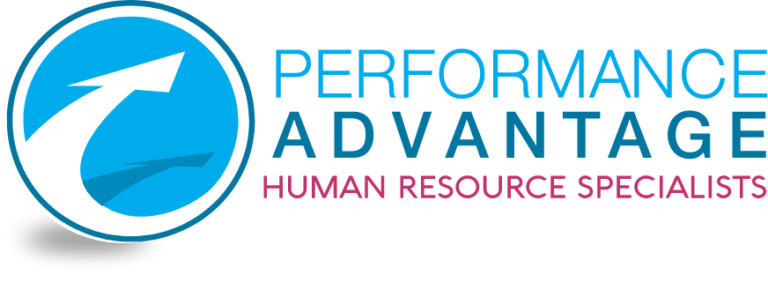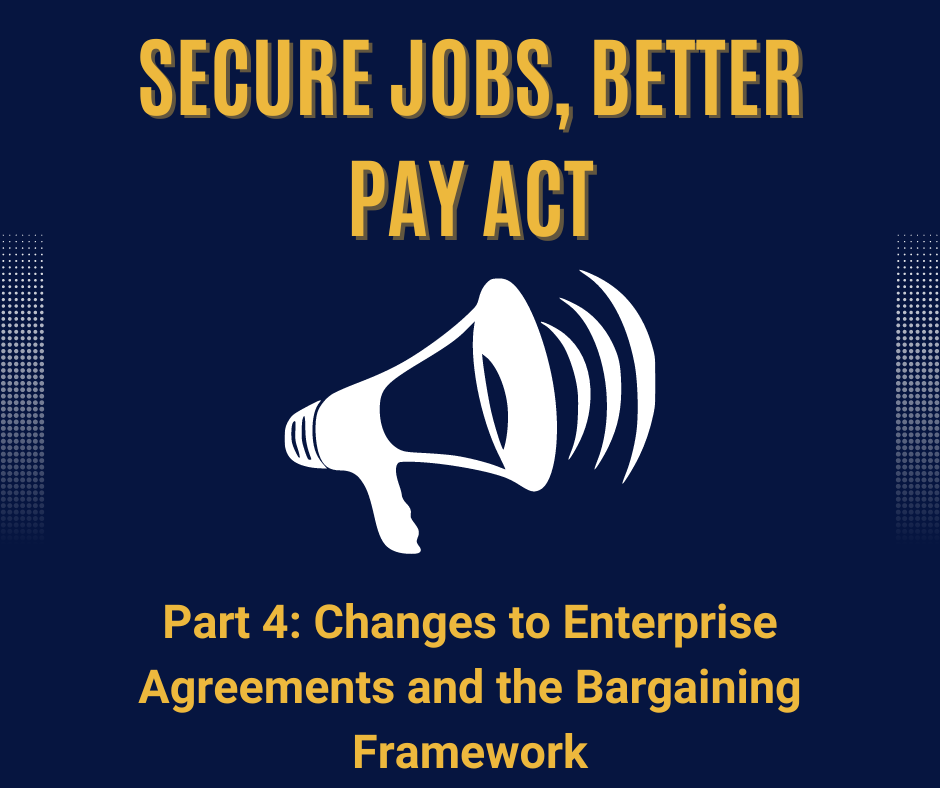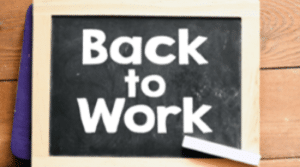The Secure Jobs, Better Pay Act 2022 has instigated substantial changes with the Enterprise Bargaining Framework and those involved in the Industrial Relations landscape – businesses, employees and unions alike.
It is no secret that the government is trying raise wages and conditions of employees and that they are doing this by empowering employees by strengthening their ability to participate in the enterprise bargaining system.
The new legislative changes now make employees more potent in effecting changes, allow more union involvement, and increases the chances of new Enterprise Agreements (EA) resulting in lifted wage growth and boosting worker conditions.
In our view, there are three key issues employers need to consider:
1. Employers need to be aware of the changes in EA and Industrial Relations (IR) conditions, and many are anxious about the implications of employees and unions being more influential in the EA / IR landscape.
2. There is concern of employers being roped into EA’s that they have not had any input into or that consider their own specific business conditions, margins, labour costs, mechanisms and schemes, and so forth. This even includes employers have not used EA’s previously with their workforce.
3. The changes are complex and vary for different sized businesses and circumstances.
The major changes from the legislation are:
- Changes to Multi-Enterprise bargaining could result in more employers being compelled to bargain together.
- Single enterprise bargaining will be easier for employees to start or initiate.
- Changes to the Better Off Overall Test (BOOT) during the approval process.
- The Fair Work Commission will have more broader powers to determine disputes.
The new legislation now states there will also be three streams of Multi-Enterprise bargaining:
1. Single Interest Bargaining Stream (common interest employers)
2. Supported Bargaining stream
3. Cooperative Workplace Bargaining Stream
For context, Multi-Enterprise Bargaining is where 2 or more employers join together to make an Enterprise Agreement (EA) with their employees.
The most relevant stream is the Single Interest Bargaining Stream for most of our clients (small and medium sized business). This is when two or more employers who have clearly identifiable common interests (or related franchisees) get together for a multi enterprise agreement. Some conditions now also apply, such as the condition that employees covered must be fairly chosen, have some bargaining representation, can express their views and it is in the public interest.
Common interest employers can be defined as: “employers whose operations and business activities are reasonably comparable having regard to the nature of the enterprises, the terms and conditions of employment within those enterprises, their geographical location and whether they are subject to a common regulatory regime” (Source: WMD Law).
There has been a change of the balance of power for employees as they can have bargaining representatives (such as unions) and can start the enterprise bargaining process for themselves. Importantly, this can only happen if there are more than 20 employees employed in a business and the majority of them in the workplace approve. The construction industry is excluded from this.
All of these changes are fundamental in reshaping the IR landscape, so it is extremely important to be across them and know where your business or organisation stands.
Luckily for you, whether you are a business owner, HR manager or executive, Performance Advantage is here to assist you. If you need further advice or consultation on how these changes impact your business, please do not hesitate to contact us 0408897079 or at suzanne@performanceadvantage.com.au
Suzanne Diprose, Director
Suzanne@performanceadvantage.com.au
0408 897 079





